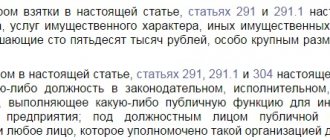The procedure for executing a court decision in a criminal case is regulated by Art.
393 of the Code of Criminal Procedure of the Russian Federation. Issuing an act and forwarding it further within the jurisdiction are the final stages of criminal proceedings. Participating in this activity are: the court, when executing acquittal verdicts or orders for the release of the defendant in the courtroom. Bodies of the executive system (transmit to the court information about the conditions of stay of convicts, their illnesses, disability and other data). The prosecutor's office (supervises the process) and public structures (initiate the early release of the sentenced person). Multi-channel free hotline Legal advice on criminal law. Every day from 9.00 to 21.00
Moscow and region: +7 (495) 662-44-36
St. Petersburg: +7 (812) 449-43-40
Article 393 – procedure for applying for execution of a sentence, ruling, court order
The implementation of a judicial verdict helps to strengthen the principles of inevitability of responsibility for a crime, legality, and respect for the rights of subjects.
Chapter 46 of the Code of Criminal Procedure of the Russian Federation establishes the procedure for the practical implementation of criminal legal acts:
- sentences;
- definitions;
- resolutions.
A verdict is the main act of criminal proceedings, issued by the court at the end of the investigation of the case. It determines the future status and fate of a person.
The duty to enforce the sentence of the Code of Criminal Procedure rests with the court that considered the criminal case on its merits, even if it was later appealed to higher judicial authorities.
The verdict is carried out within three days.
A photocopy of it is sent to the authorities authorized to carry out activities related to the implementation of criminal penalties. If the text of the decision provides for penalties of a material nature, then together with a copy of the verdict (ruling, resolution) the enforcement document is sent to the bailiff service. Correspondence may be transmitted via electronic communication. All decisions made by higher authorities are attached to a copy. Institutions directly involved in punishment inform the court about the fact that the decision has come into effect and the place where the person is serving the coercive measure.
Everything about criminal cases
Go to the text of the Code of Criminal Procedure
Url Additional information:
Appeal to execution
— Part 1 393 Code of Criminal Procedure
enforcement is assigned to the court of first instance
Copies of the verdict
(entered into force)
— Part 1.1 393 Code of Criminal Procedure
convict, defense lawyer, prosecutor - 3 days from admission
— Part 1.1 393 Code of Criminal Procedure
sent to the administration of the pre-trial detention center for delivery to the convicted person
— Part 1.1 393 Code of Criminal Procedure
if not appealed - 3 days from the date of entry into force
— Part 1.1 393 Code of Criminal Procedure
other participants are given copies upon request
Copies of the verdict to the executive authorities
— Part 2 393 Code of Criminal Procedure
the sentence is sent by the court to the body executing the punishment
— Part 2 393 Code of Criminal Procedure
for property recovery - writ of execution
— Part 2.1 393 Code of Criminal Procedure
if independent, a copy of the verdict in the Federal Penitentiary Service
— Part 2.2 393 Code of Criminal Procedure
in special cases, to the citizenship authority
— Part 2.3 393 Code of Criminal Procedure
when imposing a fine, a copy of the verdict to the budgetary authority
Guarded
— Part 3 393 Code of Criminal Procedure
the court of appeal notifies the pre-trial detention center of the entry into force
— Part 4 393 Code of Criminal Procedure
in case of change in cassation, a copy of the decision is attached
The authority notifies the court
— Part 5 393 Code of Criminal Procedure
the executing authority notifies the court of the execution of the punishment
— Part 6 393 Code of Criminal Procedure
the executive body notifies the court of the place where the sentence will be served
Article 393 of the Code of Criminal Procedure. The procedure for applying for the execution of a sentence, ruling, court order
1) Appeal to the execution of a sentence, ruling, or court decision is entrusted to the court that considered the criminal case in the first instance.
1.1)
Within 3 days from the date of receipt of a copy of the appeal verdict, ruling or resolution by the court that passed the sentence or made another final judicial decision, a copy of the sentence, ruling or court decision that entered into legal force, and a copy of the appeal verdict, ruling or resolution are handed over to:
- convicted or acquitted,
- to his protector
- and the accuser,
- and are also sent to the administration of the place of detention, the administration of the place of serving the sentence for delivery to the convicted person in custody.
Url Additional information:
- part 1 390 of the Code of Criminal Procedure
the sentence comes into force on the day the appeal period expires
If the verdict or other final court decision has not been appealed, then copies thereof are handed over to the convicted or acquitted person, their defense attorney and prosecutor, and are also sent to the administration of the place of detention, the administration of the place of serving the sentence for delivery to the convicted person in custody within 3 days from the date entry into force of a sentence or other final court decision.
Within the same time frame, copies of court decisions may be served on the victim, civil plaintiff, civil defendant and their representatives upon request of these persons.
Url Additional information:
- Part 4 390 Code of Criminal Procedure
the sentence is executed within 3 days from entry into force
- Part 4 390 Code of Criminal Procedure
executed within 3 days from the return of the case from appeal
2) A copy
of the conviction is sent by the judge or the chairman of the court to the institution or body entrusted with the execution of the punishment.
Url Additional information:
— part 3 of article 103
N 229-FZ initiation of enforcement proceedings in 3 days
To execute a sentence, ruling, or court decision regarding property penalties, a writ of execution is sent to the bailiff along with a copy of the sentence, ruling, or court decision. The writ of execution, together with a copy of the verdict, ruling, or court order, can be sent by the court for execution to the bailiff in the form of an electronic document signed by the judge with an enhanced qualified electronic signature in the manner established by the legislation of the Russian Federation.
2.1) If the sentence contains a decision on the convicted person to independently proceed to the place of serving the sentence, adopted in accordance with paragraph 11 of Part 1 of 308 of the Code of Criminal Procedure, a copy of the sentence is sent by the judge or the chairman of the court to the territorial body of the penal system.
2.2) In cases provided for by federal law, a copy of the conviction is sent to the federal executive body in the field of security and (or) the authorized bodies in charge of cases of citizenship of the Russian Federation.
2.3) If a fine is imposed as the main or additional type of criminal punishment in order to ensure the flow of income into the federal budget, a copy of the operative part of the conviction is sent to the state body that is the administrator of federal budget revenues in accordance with budget legislation.
Url Additional information:
— Part 1 75 PEC
dispatch of the convicted person no later than 10 days
3)
The appellate court is obliged to inform the institution or body entrusted with the execution of the punishment about the decision it made in relation to the person in custody.
4) If the verdict of the court of first or appellate instance is changed when considering a criminal case in cassation, a copy of the ruling of the cassation court is also attached to a copy of the verdict.
5) The institution or body entrusted with the execution of the punishment shall immediately notify the court that rendered the guilty verdict of its execution.
Url Additional information:
- Part 3 20 PEC
notification of the court about the beginning and place of serving sentences
6) The institution or body entrusted with the execution of the sentence must notify the court that passed the sentence about the place where the convicted person will serve the sentence.
Return to the text of the Code of Criminal Procedure
Seek advice
Legal commentary on Article 393 of the Code of Criminal Procedure of the Russian Federation
Business communication within the framework of enforcing a court decision is carried out by employees of the apparatus on behalf of and under the control of the judges who considered the case and the chairman.
Copies of acts sent to various departments and institutions are certified by:
- judge's signature;
- signature of the secretary;
- official stamp of the seal.
If amendments have been made to the document, a note to this effect is placed on the copy, and a copied copy of the document that made these amendments is attached. The correspondence is accompanied by a letter duly signed, a copy of which is attached to the case.
The mechanism for enacting acts depends on the type and specificity of the imposed sanction, its connection with isolation from society. The court applying for the implementation of the verdict is obliged to control this process.
Work on the case is considered completed only after receiving official notifications from the executive structures about the implementation of basic and additional coercive measures and satisfaction of civil claims. The completed case is removed from control and archived.
Arbitrage practice
The procedure for applying a sentence, determination, or resolution for execution is regulated by:
- Instructions for record keeping adopted by the Judicial Department of the Supreme Court of the Russian Federation.
- Federal Law (Federal Law) “On Criminal Execution Proceedings”.
- Code of Criminal Procedure of the Russian Federation (Criminal Procedure Code).
- PEC (Criminal Executive Code) of the Russian Federation.
Judicial acts that entered into legal force after the expiration of the period for filing a complaint, if one has not been filed, are subject to execution.
The exception is for acts that come into effect immediately. After the verdict has received legal force, a card in Form No. 6 is filled out for the convicted person, which is then sent to the accounting department of the law enforcement agency from where the case materials were received.
The judge issues an order to enforce the decision. If a person is sentenced to prison, then the documents are sent to the authorities of the pre-trial detention center (pretrial detention center) where he is being held. His task is to inform the prisoner’s relatives about where he will be taken to serve his sentence. If a preventive measure was not applied to the convicted person, then the materials are sent to the territorial internal affairs bodies at the place of registration.
A person who is to serve his sentence in a colony-settlement gets to the place on his own. Information about this is sent to the correctional institution. The convicted person must come there to receive instructions.
Serving the sentence may be postponed. In this case, two decisions are sent to the department of the executive system. One of them is transferred to the territorial department of the criminal-executive inspection (CII) by registration. When the deferment is lifted, a decision on this is transmitted to the Department of Internal Affairs.
The execution of other sanctions, except imprisonment, is monitored by the Penal Inspectorate. There the court sends a copy of the verdict, the order and the obligation of the convicted person to come in person on a certain day.
Copies of decisions concerning persons under 18 years of age are transferred to the Commission on Minors' Affairs, and regarding military personnel - to the military registration and enlistment offices.
Cassation appeal against the verdict
The new edition of Article 389.28 of the Code of Criminal Procedure of the Russian Federation “Appeal verdict, determination and resolution” stipulates that the operative part of an appeal verdict, determination or resolution must, among other things, contain explanations:
- on the procedure and deadlines for appealing them in cassation;
- on the right of a convicted and acquitted person to petition for participation in the consideration of a criminal case by a court of cassation.
The new version of Article 389.33 of the Code of Criminal Procedure of the Russian Federation “Resolution of an appeal sentence, issuance of an appeal ruling, resolution and their execution” clarifies that an appeal sentence, determination or resolution within 7 days from the date of their issuance is sent along with the criminal case for execution to the court, rendered a verdict or made another final judicial decision. A copy of the appeal verdict, ruling or resolution is immediately sent to the court that passed the sentence or made another final judicial decision for delivery to the convicted person (acquitted) and the parties in the manner established by Part 1 of Article 393 of the Code of Criminal Procedure of the Russian Federation.
Article 393 of the Code of Criminal Procedure of the Russian Federation determines that a copy of the sentence, ruling or resolution of the court that has entered into legal force, and a copy of the appeal sentence, ruling or ruling are handed over to the convicted or acquitted person, his defense lawyer and prosecutor, and are also sent to the administration of the place of detention, the administration of the place of detention punishment for delivery to the convicted person in custody within 3 days from the date of receipt of such a copy by the court that passed the sentence or made another final judicial decision. The text of the new edition of the article states that:
If the verdict or other final court decision has not been appealed, then copies thereof are handed over to the convicted or acquitted person, their defense attorney and prosecutor, and are also sent to the administration of the place of detention, the administration of the place of serving the sentence for delivery to the convicted person in custody within 3 days from the date entry into force of a sentence or other final court decision. Within the same time frame, copies of court decisions may be served on the victim, civil plaintiff, civil defendant and their representatives upon request of these persons.






